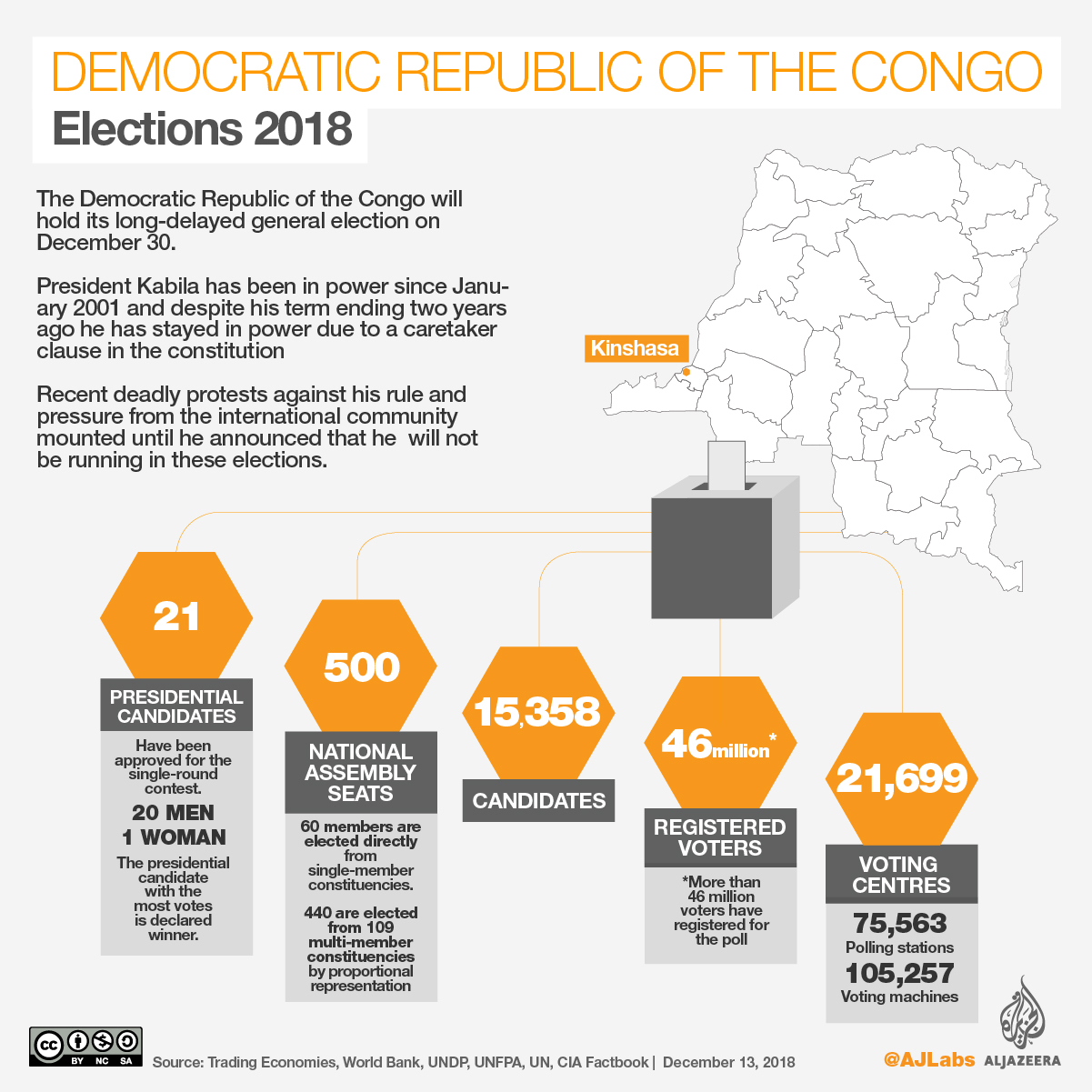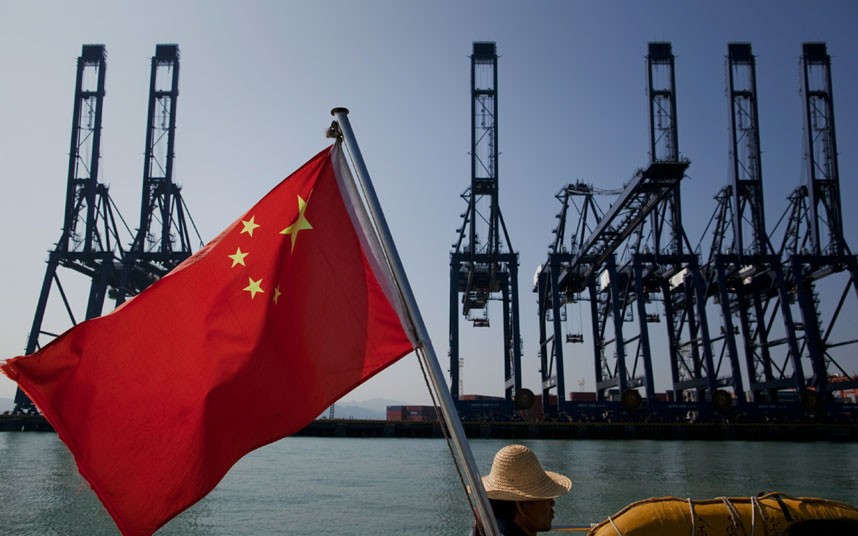
Results from the Democratic Republic of Congo’s (DRC) long-delayed presidential election could be pushed back past Sunday’s deadline, the country’s electoral commission has said, as ballots trickle in and tensions prevail over the vote count.
As of Wednesday, three days after the election, counting centres had received just 17 percent of the tally sheets drawn up by individual polling stations, the president of the CENI electoral commission, Corneille Nangaa, told Reuters news agency.
“We will try as hard as possible to meet Sunday’s deadline, but it will be challenging,” Nangaa said, without mentioning the reason for the delays.
Election monitors from the Southern African Development Community (SADC) said the December 30 vote “went relatively well” despite chaotic scenes that prevented many from voting.
The crucial election is meant to lead to DRC’s first democratic transfer of power in 59 years of independence.
But more than a million Congolese in three opposition strongholds were unable to vote due to an Ebola outbreak, security concerns, local factional conflict and various logistical problems.
A spokesman for Felix Tshisekedi, one of the two opposition candidates, said he doesn’t mind when the results are published as long as they are an honest reflection of the vote.
”I doubt it will be Sunday, because some corners of the country have not transmitted their results, but I can’t speak for the commission,” Vital Kamerhe told reporters in the capital, Kinshasa.
“Whether it’s on Sunday or Monday, Tuesday, we don’t mind. What we want are results published that reflect the truth of the ballot boxes, that is the most important thing,” he added.
The elections will determine the successor of President Joseph Kabila at the helm of sub-Saharan Africa’s biggest country for nearly 18 years.
Kabila refused to step down after his two-term constitutional limit ended in 2016, sparking protests that were quelled at the cost of scores of lives.
Pre-election polling showed Kabila’s preferred candidate, ex-interior minister Emmanuel Ramazani Shadary, trailing the main opposition candidates, Martin Fayulu and Tshisekedi, but both sides say they expect to win.
The African Union (AU) issued a statement on Wednesday saying Sunday’s vote had taken place “in a peaceful and tranquil atmosphere, despite interference and all the security, political and organisational challenges.”
“The holding of these elections constitutes, in itself, a first great victory for the Congolese people,” the statement said. “The mission strongly wishes that the results that will be declared are true to the vote of the Congolese people.”
Broadcasts, internet curb
Meanwhile, the Congolese ruling party said the internet shutdown, which has been in place since Monday, will continue, to prevent disorder.
“The Common Front for the Congo (FCC) regrets the internet shutdown since Monday, but notes that some people tried to use the internet to pit the Congolese people against each other,” said Barnabe Kikaya Bin Karubi, FCC spokesperson.
“We ask the population to remain calm and wait peacefully for the provisional results that the electoral commission will publish in the coming days,” he told reporters.
 |
Amid tensions over the vote counting, authorities have also pulled accreditation for a French radio journalist and cut broadcasts from the station, as well as a local television channel.
Government spokesman Lambert Mende accused Radio France Internationale (RFI) correspondent in Kinshasa, Florence Morice, of violating electoral law and “the code of good conduct for foreign journalists covering the elections”.
Accusing the station of stirring controversy, he said, “RFI’s broadcasts have been cut off in all of Congo’s cities.”
“We are not going to let a radio station throw petrol on the flames at a time when we are waiting for the compilation of the provisional results,” Mende said.
Mende said authorities also cut the signal of local Canal Congo television, seen as close to the opposition, for broadcasting election results ahead of an official announcement.
Preliminary election results are due by Sunday, definitive results by January 15, with the next head of state due to be sworn in January 18.
Contested election results in 2006 and 2011 led to violent street protests, and there are fears a disputed outcome this time could also destabilise DRC’s volatile eastern borderlands with Rwanda, Uganda and Burundi, where dozens of armed groups are active.












